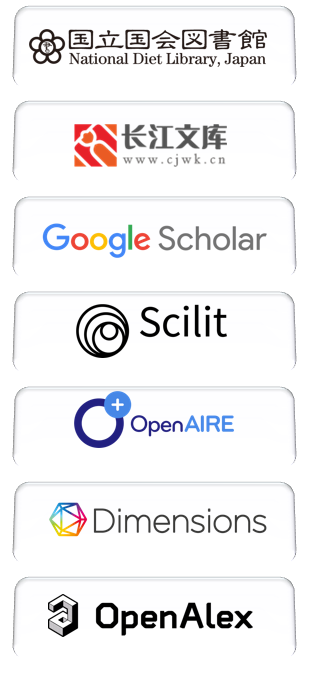Archives
-
Vol. 1 No. 4 (2025)
Editorial Introduction
In this issue of the International Journal of Educational Review Vol. 1, Issue 4, In this issue of the International Journal of Educational Review Vol. 1, Issue 4, we feature a thought-provoking article by Prof. Li. His research, based on interview case studies with three university graduates, provides an in-depth exploration of how graduates adapt to the early stages of their professional careers. The study highlights that personal self-awareness and career positioning, universities’ talent cultivation strategies, and enterprises’ training and information provision are all key factors influencing a smooth transition from academia to the workplace. We hope this research offers valuable insights for universities, employers, and graduates themselves, supporting a successful progression into professional life.
Published in Kyoto
-

Vol. 1 No. 2 (2025)
ISSN 2760-2427 Print
ISSN 2760-2435 OnlineEditorial Introduction
In this issue of the International Journal of Educational Review Vol. 1, Issue 2, the featured articles explore diverse yet interconnected dimensions of education, spanning individual development, social protection, and national talent cultivation. SHAO Jie’s article, grounded in life-course theory, examines the trajectories of university students, highlighting the interplay between personal agency, family support, and institutional opportunities. Yi wanxian’s contribution turns to higher education faculty development, drawing lessons from international practices to advocate for systematic training of graduate students’ teaching ability in China. Li Jiaxin’s study investigates the dual vulnerability of urban children in plight during major crises, underscoring the urgency of multi-stakeholder engagement and risk governance. Taken together, these articles illuminate education as both a personal journey and a societal endeavor, integrating individual growth, social responsibility, and national development into a shared vision for the future.
We hope these contributions will inspire readers and promote continued academic dialogue and collaboration. We extend our sincere gratitude to all authors, peer reviewers, and editorial staff for their dedicated efforts. We warmly welcome readers to continue following the journal and submitting their work, contributing to the growth and excellence of this publication.Published in Kyoto
-

Vol. 1 No. 3 (2025)
Editorial Introduction
In this issue of the International Journal of Educational Review Vol. 1, Issue 3, we are
pleased to feature two outstanding contributions.
The first article, authored by Professor Yang, draws on her rich educational experience to analyze how the steady progress of artificial intelligence has enabled the application of computer vision (CV) in vocational education. The study further proposes and validates a multimodal teaching framework that not only enhances learning outcomes but also alleviates the repetitive workload of teachers, thereby providing new insights into the digital transformation of vocational education. The second article, contributed by
Zhang, employs interview-based research to explore the challenges faced by master's students in the post-pandemic era, particularly regarding the heightened pressure of job placement. The paper examines the underlying causes of this stress and offers potential strategies for mitigation, shedding light on an important issue of global concern in higher education.
Together, these works reflect the journal’s commitment to advancing both theoretical and practical discussions in contemporary education, and we hope they will inspire further academic inquiry and practical innovation.Publised in Kyoto.
-

Vol. 1 No. 5 (2025)
Editorial Introduction
In this issue of the International Journal of Educational Review, Vol. 1, Issue 5, two significant articles are featured. Professor Millward’s book review interprets, through the lens of narrative inquiry, a memoir depicting a teacher’s journey from professional burnout to renewal. The review discusses the book’s insights into cross-cultural issues in teacher retention and compares it with related post-pandemic works, highlighting the value of such texts in the training of teachers and educational administrators.
Ms. Zhang’s study emphasizes that faculty development is crucial to talent cultivation in higher education. By comparing the goals, functions, structures, and programs of the teaching centers at the University of California, Berkeley and Xiamen University, the research provides useful guidance for the development of faculty centers in China’s research universities.
We thank them for their outstanding contributions to the field of education and welcome more high-quality submissions. -

Vol. 1 No. 1 (2025)
Editorial IntroductionVolume 1, Issue 1 of the International Journal of Educational Review focuses on the development of higher education in China, aiming to present the latest research findings and scholarly reflections in this field.
This issue features one research note and one research article, covering topics such as the profile of Chinese university presidents and mental health education for Chinese college students. Xu Ying’s research note provides a detailed summary and analysis of the key characteristics, educational and academic backgrounds, and appointment patterns of presidents at 42 “Double First-Class” universities in China. Her work also offers suggestions for future university leadership selection. Tu Siyu’s article, based on empirical data collection, offers a comprehensive analysis of the positive and negative impacts of social networking on the mental health of Chinese university students.
The contents of this issue not only reflect ongoing theoretical advancements but also provide valuable insights for practical application. We hope these contributions will inspire readers and promote continued academic dialogue and collaboration.
We extend our sincere gratitude to all authors, peer reviewers, and editorial staff for their dedicated efforts. We warmly welcome readers to continue following the journal and submitting their work, contributing to the growth and excellence of this publication.
Published in Kyoto
-
Online First
Issue 2026 (1) is currently in progress
-- until June 30, 2026.





